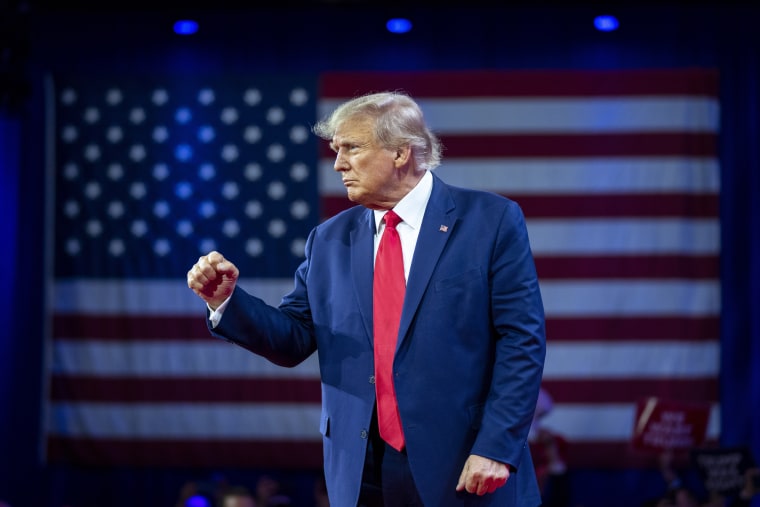The Illinois State Board of Elections unanimously voted Tuesday to keep former President Donald Trump on the ballot ahead of the state's March 19 primary election, rejecting a challenge that he should be disqualified because of Jan. 6.
The board, which is made up of four Democrats and four Republicans, heard the case about a petition five voters brought this month that argued that Trump is ineligible to appear on the state's ballot. The petitioners said Trump should be barred from Illinois' primary ballot for the March 19 election because, they say, he violated Section 3 of the 14th Amendment by engaging in insurrection in his effort to overturn the 2020 election.
The board was presented with a variety of perspectives on how it should act.

After brief arguments last week, a hearing officer for the Illinois board said it should be up to the courts, rather than election officials, to decide Trump’s eligibility because of the complicated constitutional issues involved. But the opinion from Clark Erickson, a Republican retired judge, concluded that a “preponderance of the evidence” presented proved that Trump engaged in insurrection and should be barred from the ballot.
The board's general counsel, meanwhile, argued that the Board of Elections does have the jurisdiction to decide the case and should rule that Trump should stay on the ballot.
Before the board voted Tuesday, a lawyer for the objectors behind the petition, Matthew J. Piers, said there is "no question under the law" that "this board not only has the authority to determine an objection, based on the U.S. Constitution, but indeed you have the clear, mandatory duty to do so."
"There is no complicated or controversial or constitutional limitation on your powers. You must do your duty under the election code," said Piers, who added that Trump "took a leading role in organizing, facilitating, supporting, directing and protecting a conservative armed and violent invasion and seizure and disruption of the United States Congress on Jan. 6."
Trump's lawyer, Adam P. Merrill, said his client didn't incite an insurrection and never advocated violence at the U.S. Capitol.
"We urge the board to not weigh in on this,” Merrill said. "The Colorado case is now before the U.S. Supreme Court, and it really is under all of these circumstances it makes no sense for the board to weigh in and deprive Trump of and the voters of Illinois to the ballot access."
The Supreme Court is scheduled to hear oral arguments in the Colorado case on Feb. 8. The Colorado Supreme Court ruled Dec. 19 that Trump is ineligible to appear on the state election ballots because of Section 3 of the 14th Amendment.
